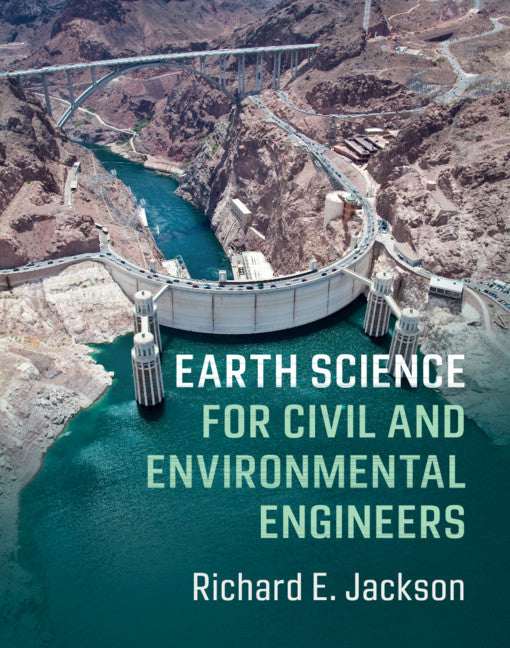Freshly Printed - allow 4 days lead
Couldn't load pickup availability
Earth Science for Civil and Environmental Engineers
Introduces the fundamental principles of applied Earth science needed for engineering practice, with case studies, exercises, and online solutions.
Richard E. Jackson (Author)
9780521847254, Cambridge University Press
Hardback, published 24 January 2019
492 pages, 320 b/w illus. 2 maps 59 tables 99 exercises
28.3 x 22.4 x 2.7 cm, 1.6 kg
'An ideal resource for a one-semester course, this textbook introduces students to the varied disciplines that make up earth science as applied to civil engineering. Topics, methodology and terminology typically unfamiliar to engineering students are made easy to digest through the provision of an extensive glossary and ample examples of application in engineering practice. I warmly recommend this book to students and practitioners looking to expand their knowledge and expertise in this interdisciplinary field.' John Burland, Emeritus Professor of Soil Mechanics, Imperial College London
This carefully targeted and rigorous new textbook introduces engineering students to the fundamental principles of applied Earth science, highlighting how modern soil and rock mechanics, geomorphology, hydrogeology, seismology and environmental geochemistry affect geotechnical and environmental practice. Key geological topics of engineering relevance including soils and sediments, rocks, groundwater, and geologic hazards are presented in an accessible and engaging way. A broad range of international case studies add real-world context, and demonstrate practical applications in field and laboratory settings to guide site characterization. End-of-chapter problems are included for self-study and evaluation, and supplementary online materials include electronic figures, additional examples, solutions, and guidance on useful software. Featuring a detailed glossary introducing key terminology, this text requires no prior geological training and is essential reading for senior undergraduate or graduate students in civil, geological, geotechnical and geoenvironmental engineering. It is also a useful reference and bridge for Earth science graduates embarking on engineering geology courses.
1. Introduction
Part I. Rocks as Engineering Materials: 2. The structure and composition of the Earth
3. Geological structures and maps
4. Rock mechanics
5. Characterization of rocks and rock masses
Part II. Soils and Sediments: 6. Terrain evolution and analysis
7. Environmental geochemistry and mineralogy
8. Glacial sediments and permafrost
9. Fluvial processes and sediments
10. Characterization of soils and sediments
Part III. Groundwater: 11. Hydrogeology
12. Groundwater quality and contamination
13. Land subsidence and karst
Part IV. Geological Hazards: 14. Seismicity and earthquakes
15. Landslides and the stability of slopes
16. Coastal hazards.
Subject Areas: Mining technology & engineering [TTU], Civil engineering, surveying & building [TN], Petroleum technology [THFP], Geochemistry [RBGK]


